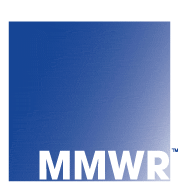Title: MMWR Vol. 58 / No. RR-5
| If you have trouble reading this e-mail, please click here.
|

|

|
Early Release
Volume 58, No. RR-5
May 1, 2009
|

|
|
|
|
Compendium of Measures to Prevent Disease Associated with Animals
in Public Settings, 2009
National Association of State Public Health Veterinarians, Inc. (NASPHV)

|

|
|
|

|
Health risks such as infectious diseases, exposure to rabies, and injuries are associated with contact with animals in public settings, including county
or state fairs, petting zoos, animal swap meets, pet stores, zoologic institutions, circuses, carnivals, educational farms, livestock-birthing exhibits, educational exhibits at schools and child-care facilities, and wildlife photo opportunities. Washing hands is the most important prevention step
to reduce the risk for disease transmission associated with animals in public settings. Other recommendations include prohibiting food in animal areas, including transition areas between animal areas and nonanimal areas, providing information about disease risk and prevention to visitors,
and proper care of animals.
|

|
 full text full text
|

|
Appendix A: Animals in Public
Settings: Guidelines for Venue
Operators and Staff Members
|

|
 full text full text
|

|
| Appendix B: Suggested Sign or Handout for Visitors to Petting Zoos
|

|
 full text full text
|

|
Appendix C: Hand-Washing Recommendations to Reduce Disease Transmission from Animals
in Public Settings
|

|
 full text full text
|

|
Appendix D: Guidelines for Animals
in School and Child-Care Settings
|

|
 full text full text
|

|
|
|
Department of Health and Human Services
Centers for Disease Control and Prevention
|
|
|
To change your subscriptions or preferences or stop subscriptions anytime, log in to your User Profile with your e-mail address. Please update your user information now so CDC can send you the latest news for your area. For questions or problems with the service, contact support@xxxxxxxxxxxxxxx.
This service is provided by CDC. Visit us on the web at www.cdc.gov.
Centers for Disease Control and Prevention (CDC) · 1600 Clifton Rd · Atlanta GA 30333 · 800-CDC-INFO (800-232-4636)



